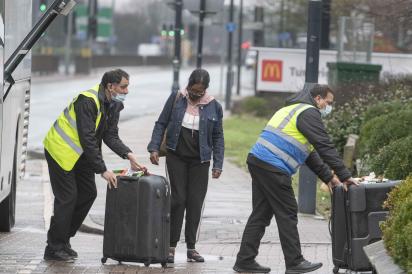There are no products in your shopping cart.
| 0 Items | £0.00 |


NIGERIANS who have been cooped up in quarantine hotels across the UK as a result of the country being placed on the controversial red list are being allowed to go home so long as they test negative for coronavirus.
As part of a plan to ease the lockdown and return to normality, the UK had introduced a traffic light health structure with countries placed on green, amber and red lists. Controversially, Nigeria was added to the list earlier on December 4, meaning that anyone who travelled in from Nigeria had to be quarantined in a hotel for 10 days at a cost of about £2,500.
Incensed by the decision, Nigerians in the UK launched a petition seeking to get the British government to rescind the measure. Reeling under the pressure, today, the British government relented and announced a policy reversal, pointing out that all 11 countries will be removed from the red list as from 4am yesterday morning.
With the red list now scrapped, those who have been held in hotels have now been told that they are free to go home so long as they test negative. Health secretary Sajid Javid also confirmed guests will be refunded for the days they have not used.
Mr Javid said: "Anyone that is in a quarantine hotel that has not tested positive, I want to see them leave those hotels today and they will get a refund for the portion of their hotel that they have not used. However, anyone who tests positive must continue to complete their quarantine at the hotels."
Likewise, unvaccinated guests who have been in contact with someone who has tested positive, will also stay in isolation in these quarantine hotels. Roughly 5,000 people have come through the hotel quarantine system since the red list was re-started in late November, according to Jonathan Mogford of the UK Health Security Agency.
Speaking to the Transport Select Committee yesterday, Mr Mogford said the latest figures suggested about 5% of people in the hotels had tested positive for Covid-19. Of those, between 1% and 3% had Omicron.